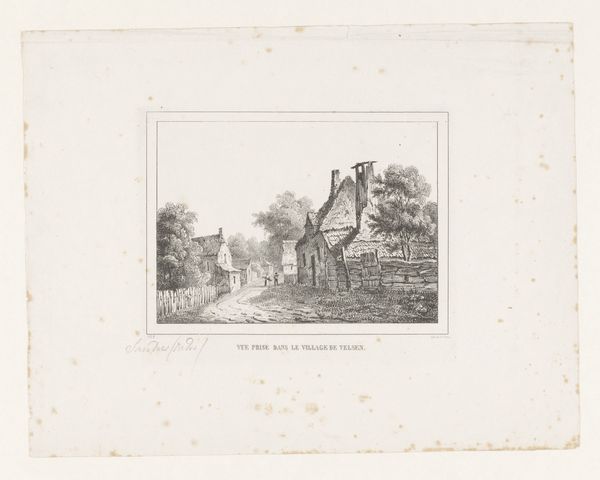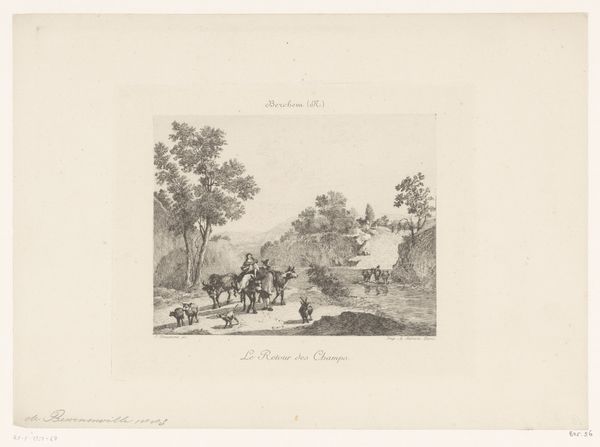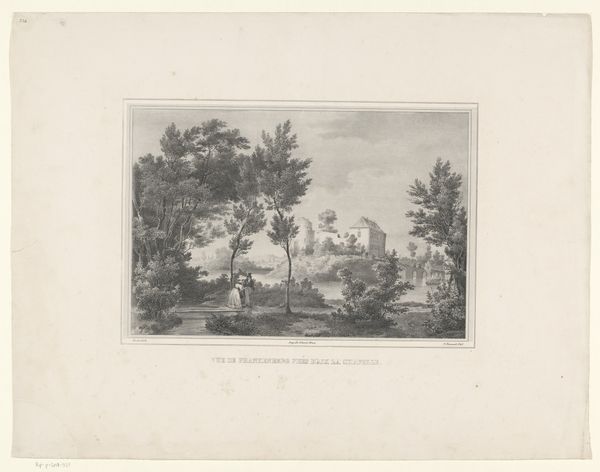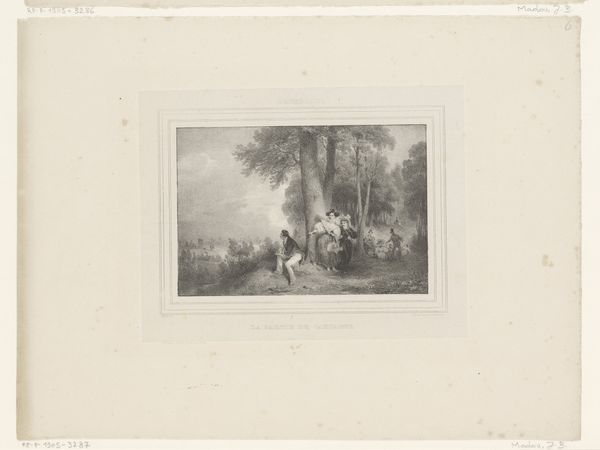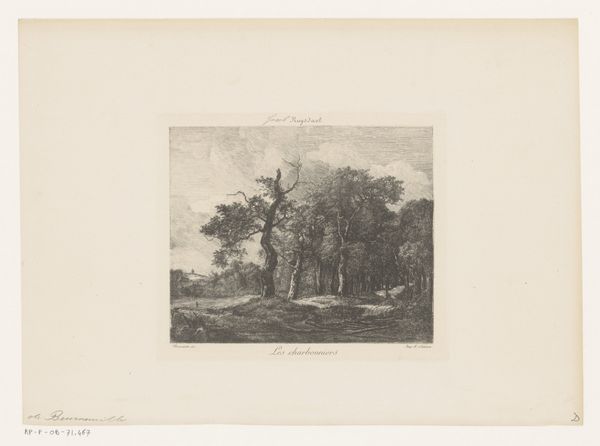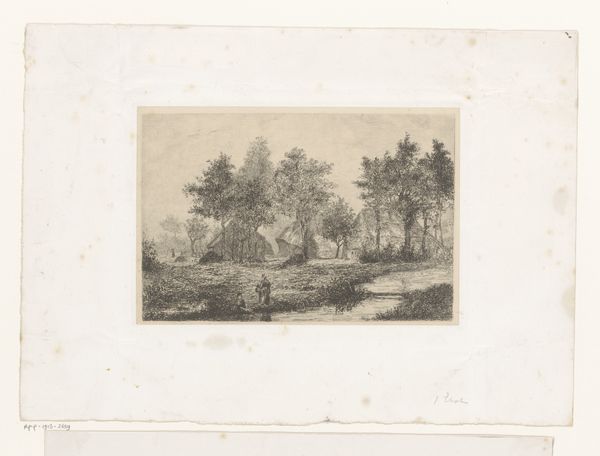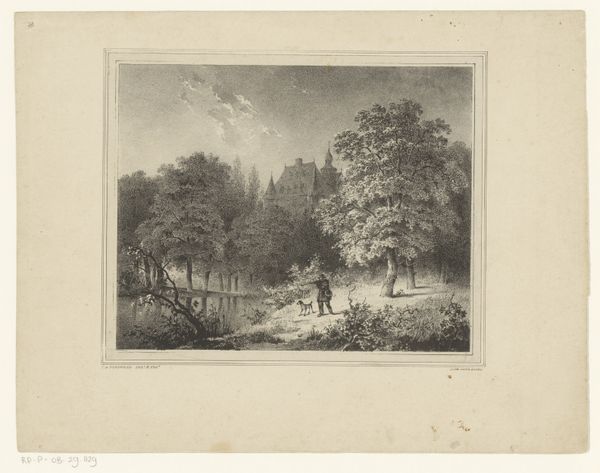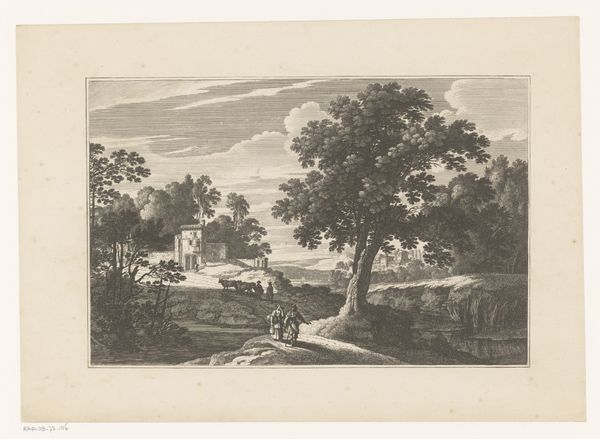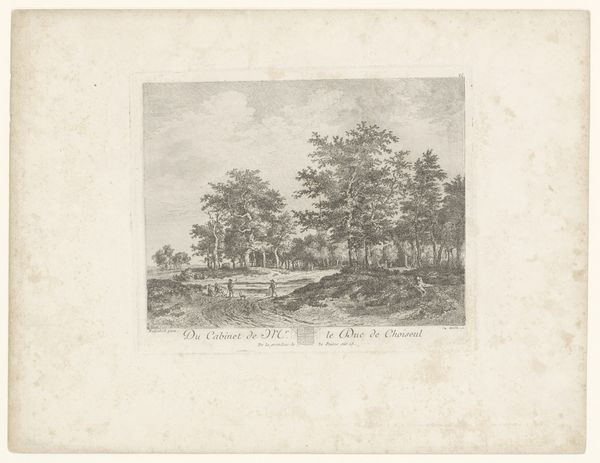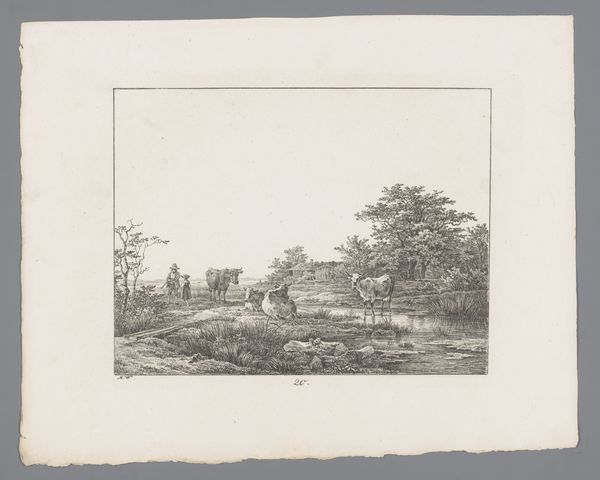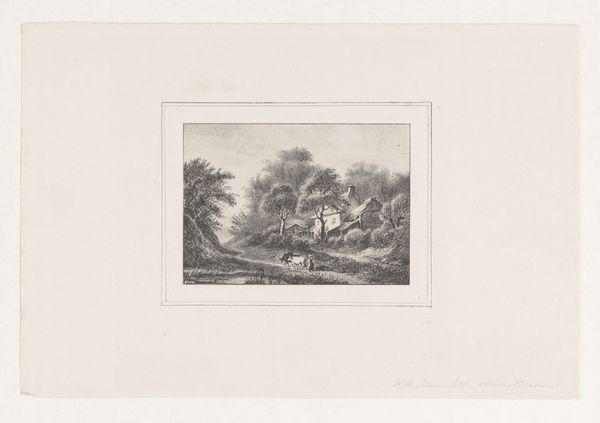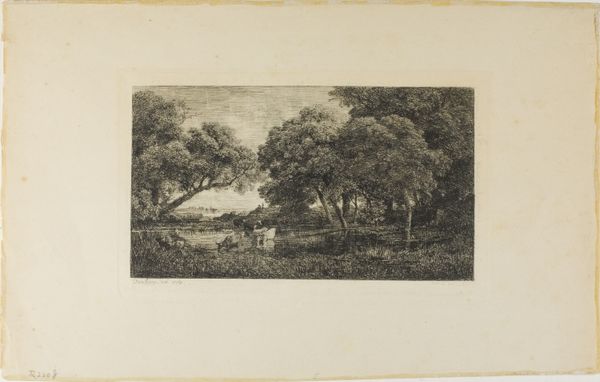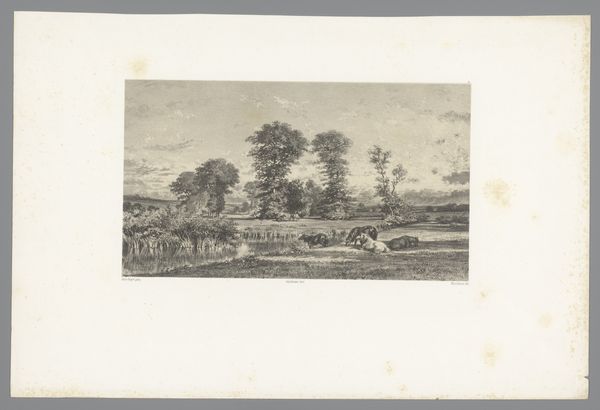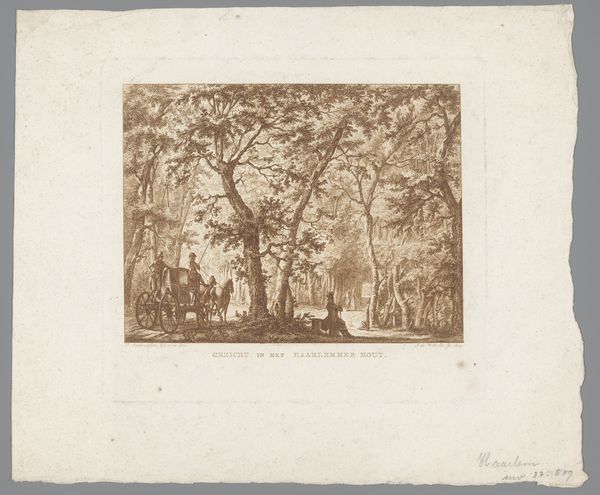
drawing, paper, pen
#
drawing
#
landscape
#
house
#
paper
#
romanticism
#
pen
#
watercolour illustration
#
watercolor
Dimensions: height 302 mm, width 490 mm
Copyright: Rijks Museum: Open Domain
Curator: Here we have Paulus Lauters's "Gezicht op Burg Frankenberg bij Aken," dating roughly from 1816 to 1848. It's currently held at the Rijksmuseum and is rendered in pen and watercolor on paper. Editor: It strikes me immediately as very balanced. The ruins, trees, even the figures in the foreground all seem meticulously placed to achieve a sense of harmony. Curator: The evenhanded composition definitely contributes to its sense of placid romanticism, aligning with a broader cultural trend toward idealizing the past and natural beauty. The castle, for instance, speaks volumes about shifting power structures and societal nostalgia for feudal times. Editor: Indeed, and note how Lauters guides our eye using gradations of light and shadow. See the careful transitions from the darker foreground to the luminous castle ruins? It's a beautiful orchestration of tone. The structural integrity within the composition seems paramount to meaning here. Curator: I wonder, too, about the men fishing in the foreground. What stories do they represent? Is it perhaps a commentary on class dynamics, or on humanity's interaction with the environment? Editor: Perhaps, but they also serve as perfect, almost mathematical counterpoints, don’t they? Framing the view, almost mirroring each other. Even the delicate hatching and stippling, creating texture and depth in the trees. Lauters possesses a firm grasp of the formal elements, seemingly bending socio-political content toward aesthetic resolution. Curator: Maybe it's also relevant that this is watercolor, traditionally seen as a 'feminine' medium in its delicate execution. Perhaps that, itself, is subtly subversive, commenting on gender roles. Editor: An intriguing possibility. I still return to how the composition keeps the landscape within bounds, neat even in its evocation of ruin. Curator: I find myself focusing now on the details, wondering what he may have left in and left out… How art reflects reality, but it doesn’t deliver a complete truth about lived reality, just an echo. Editor: Ultimately, whether Lauters intended deep political statements or not, his skillful management of form invites enduring aesthetic contemplation.
Comments
No comments
Be the first to comment and join the conversation on the ultimate creative platform.
